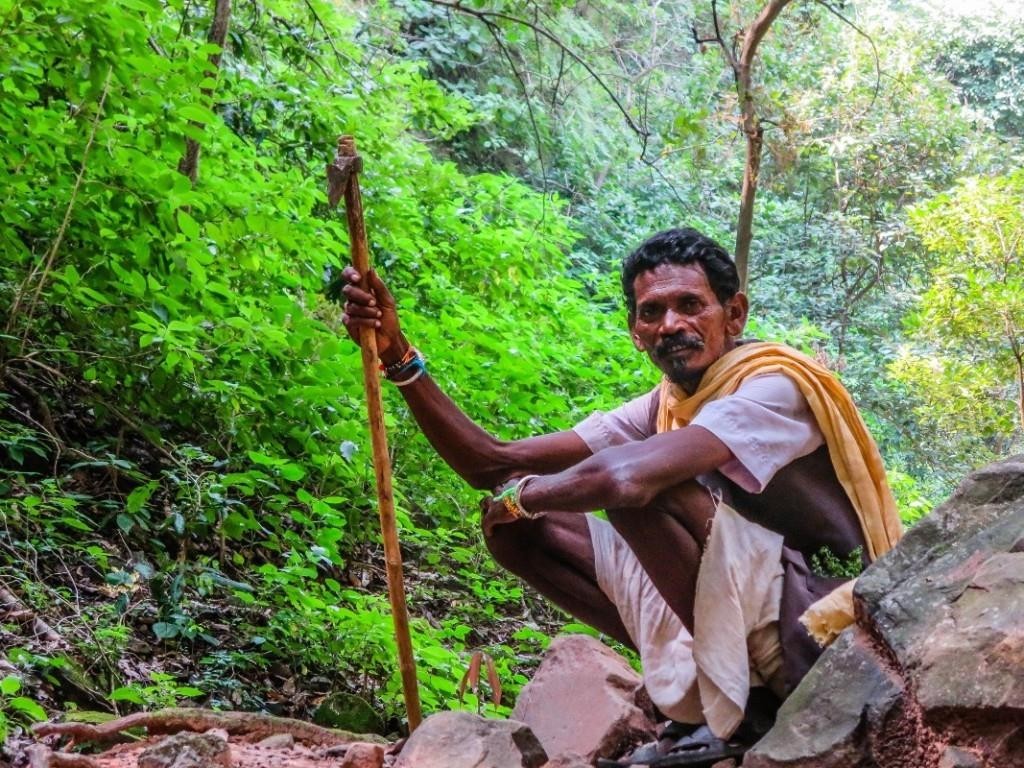Take This Visual Journey To The Remote Village Of Patalkot & Meet Its Unique Tribes
Patalkot, a village in Madhya Pradesh is so deep that even sunlight cannot reach it. As the clock strikes four in the evening, the valley plunges into darkness everyday. It is believed that after worshiping Lord Shiva, Prince Meghnath had gone to Patal-lok (the underworld) through this place. It is also said that the kings who ruled this place in the 18th and 19th century had constructed a secret tunnel which connected it to Pachmarhi in Hoshangabad district
The mesmerizing landscapes and scenic beauty which is untouched by urbanization is something that makes this site unique.
The place is so remote that people did not even know that it existed, and it was discovered by the ‘civilized’ world only a few years ago.
“Even our ancestors were afraid to live here. They stayed in Pachmarhi, but gradually they shifted here and started doing odd jobs like bamboo cutting,” says Nanhe Lal, a member of a tribe from the village in Patalkot.
Spread over 79 sq.km. at an average height of 2750-3250 feet above Mean Sea Level, Patalkot has a population of 2012 which reside in 12 villages and 13 hamlets. “The place was hard to find but it was worth the efforts.
It was breathtaking,” says Prakhar Deep Jain, a documentary film maker.
Apart from several mythological and historical connections, Patalkot is famous for its tribes which excel in making medicines from herbs. The lesser-known tribes which so far were not even recognized by the government have started earning by collecting minor forest produce and selling it in the market.
Some of the amazing herbs found here include Addhajira (Chaff Tree), Bach(Sweet Flag), Adusa (Malabar nut), Ajgandha, Soorankand (Corm), Kalmegh (Andrographis), Narbod/ Satavar (Wild Asperagus), Kachnaar (Variegated mountain ebony), Punarnava (Spreading Hogweed), Shivlingi, Khatua (Sprout leaf plant), Van Karonda, Van kela, Maida Lakdi, Brahmi (Indian pennywort), Safed musli, Hadjori, Jangali Piyaz (Indian squill), etc.
Promotion
People who came to the forest saw the potential profit that could be made from these herbs and a section of the village was cut down to make easier access for the collection of these herbs. In return for cutting down the trees, the tribals were given portable radio sets which they used for scaring the wild animals. This indeed has killed the original folk songs which kept the tribe together.
Living harmoniously in this “untouched” land, these tribes love to help each other.“The only source of money is the daily wage job provided by the community. Selling berries, amla, etc. also earns us some money,” Nanhe Lal says.
Though completely cut off from the cities, the kids of these tribes have gradually started going to schools and are seeing a better future. “We are gradually uplifting from the past,” Nanhe Lal says.
- With the news of Patalkot’s herbs spreading far and wide, the valley has been grappling with many dangers including deforestation, loss of cultural identity, etc. It’s time we took steps to protect some of our last remnants of cultural heritage and natural wealth.





